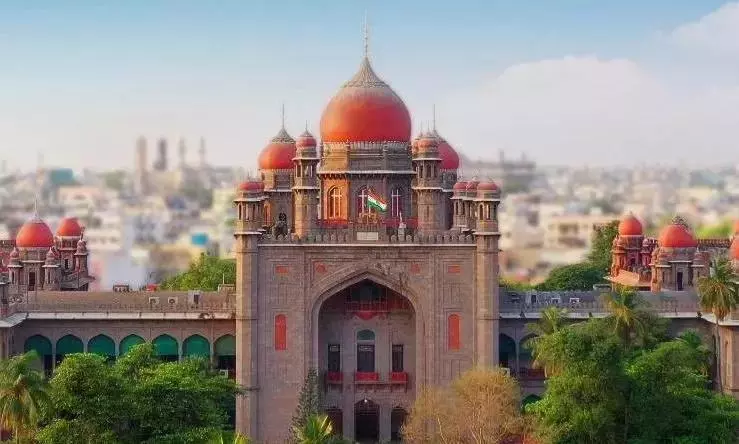Tech Colleges Fail In Bid To Increase CSE Seat Quota
The Telangana High Court upheld the decision of the state government to reject the request of 14 engineering colleges situated in the Kandlakoya area of Medchal Malkajgiri district to increasing seats for the BTech (Computer Science Engineering) course for 2024-25.

Hyderabad:The Telangana High Court upheld the decision of the state government to reject the request of 14 engineering colleges situated in the Kandlakoya area of Medchal Malkajgiri district to increasing seats for the BTech (Computer Science Engineering) course for 2024-25.
Justice K. Lakshman of the Telangana High Court considered that the data furnished by the state government, which stated that around 674 CSE seats are vacant in 41 engineering colleges situated in Medchal Malkajgiri district for 2024-25, of which 141 seats were in the 14 colleges situated in the vicinity of Kandlakoya.
Going by the data and considering other facts like infrastructure , teaching and non-teaching staff of the colleges, the judge upheld the decision of the government.
The court rejected the contention of the colleges which argued that the government had discriminated against them as some of these institutions and societies had members who were connected to the previous BRS government or had affiliations with the former ruling party.
Among the petitioners were the Anurag group, Malla Reddy group, MGR Educational Society, CMR group, Vidya Jyoti Engineering College, MLR Institute of Technology, Marri Laxman Reddy College of Engineering, Institute of Aeronautical Engineering, Maruthi Education Society, St Martin College of Engineering and Nalla Malla Reddy College of Engineering and Technology.
Some of the colleges alleged that the state government had deliberately denied their rights, which have been granted to the other institutions. Such an action was arbitrary and illegal and would fall within the ambit of legal malice. The court pointed out that when there was no specific assertion to demonstrate the discrimination, the action of the government could not be said to be unreasonable.
The colleges also argued that the state government failed to consider that the AICTE and JNTU had accorded them permissions by granting no-objection certificates after conducting inspections.
Justice Lakshman specifically pointed out the note of the AICTE, which had inspected 14 colleges in a day. The judge noted: “The expert visiting committee (EVC) of the AICTE has to conduct inspection properly. It has to consider the infrastructure facilities provided by petitioner engineering colleges including the details of teaching and non-teaching staff, technical staff, library, computers, other infra-structural issues in detail. It cannot be a verification of the data furnished by the colleges. The same is impermissible. It has to conduct inspection, not verification”.
In rejecting the request of the engineering colleges, the judge also considered data submitted by JNTU, which stated that only 48 students wrote the exams from these 14 engineering colleges out of the 376 students allotted to these colleges in the mop-up round counselling, and only 60 students attended the classes.

